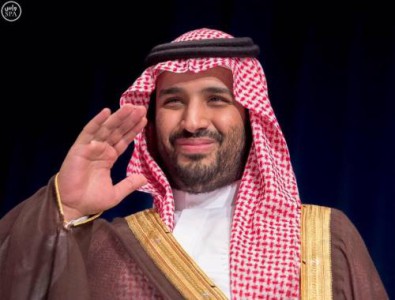Al-Sabah Al-Yemeni | follow up |
Mohammed bin Salman, the heir to the Saudi throne, confessed to two former US officials he “wants out” of the brutal two-year war he started in Yemen, and added that he was “okay” with Washington engaging with his arch-foe Iran, according to leaked emails obtained by Middle East Eye.
The 31-year-old revealed his intentions to Martin Indyk, the former US ambassador to Israel, and Stephen Hadley, a former US national security adviser, at least one month before the kingdom accused Qatar of undermining its campaign in Yemen and colluding with Iran.
He was quite clear… that he wants out of Yemen and that he is OK with the US engaging Iran
– Martin Indyk on MBS
More than 10,000 people have been killed and 40,000 injured in the war in Yemen, since bin Salman launched his Decisive Storm campaign to regain the country from Houthi control. Yemen is being ravaged by an outbreak of cholera that has infected 500,000 people.
Two-thirds of its population – more than 18 million people – need humanitarian assistance and more than seven million are suffering from malnutrition.
Details of the meeting were contained in an email thread between Indyk and Yousef Otaiba, the UAE’s ambassador in Washington, which was obtained by the GlobalLeaks campaign group.
Indyk and Otaiba were discussing the Saudi prince’s “pragmatism” and where it deviated from the public positions the kingdom adopts.
At 10.17am on 20 April, Otaiba wrote: “Sometimes foreign ministers have to raise the bar a little higher. And I think MBS is far more pragmatic than what we hear is (sic) Saudi public positions.”
By return some 27 minutes later Indyk wrote: “I agree on that. He was quite clear with Steve Hadley and me that he wants out of Yemen and that he is OK with the US engaging Iran as long as it is co-ordinated in advance and the objectives are clear.”
Otaiba replied: “I do not think we will ever see a more pragmatic leader in that country. Which is why engaging with them is so important and will yield the most results we can ever get out of Saudi.”
“We’re doing our best to do that,” said Indyk, who is perhaps better known for a career championing pro-Israel policies rather than Saudi ones.
Emails spanning several years show Otaiba’s apparent high regard for Indyk, who turned to him for a November 2013 meeting with the crown prince of Abu Dhabi, Mohammed bin Zayed, in order to “give him some granularity on the cousins” – a reference to Israel.
Otaiba is clear in private correspondence about his country’s ambitions to lead the region and the splits emerging within the Gulf Cooperation Council.
In an email exchange with Elliott Abrams, a former US official renowned for neoconservative views on Israel, the ambassador does not demur when Abrams writes: “Jeez, the new hegemon! Emirati imperialism! Well if the US won’t do it, someone has to hold things together for a while.”
Otaiba replies: “Yes, how dare we! In all honesty there was not much of a choice. We stepped up only after your country chose to step down.”
Abrams complains it was “too bad you aren’t getting the help you deserve” from the US, Qatar and Saudi. Otaiba adds: “Or Oman or Turkey.”
Otaiba, however, is brutally clear about who he thinks is in the driving seat, when it comes to the Emirati-Saudi relationship.
To Abrams, Otaiba replies: “I think in the long term we might be a good influence on KSA [Kingdom of Saudi Arabia], at least with certain people there.”
Continuing the exchange Otaiba confides: “Our relationship with them is based on strategic depth, shared interests, and most importantly the hope that we could influence them. Not the other way around.”
Indyk was contacted and presented with the substance of his email exchange with Otaiba. He refused to comment.
Otaiba did not reply to MEE’s request for comment. Hadley said: “I cannot comment on what was a private conversation.”
News Click
خليك معنا

